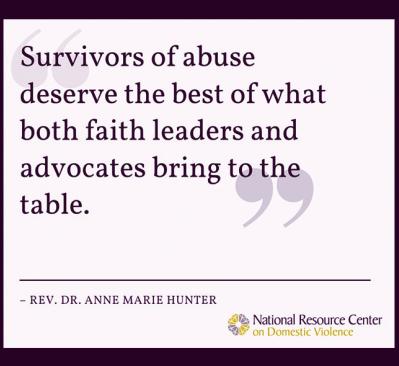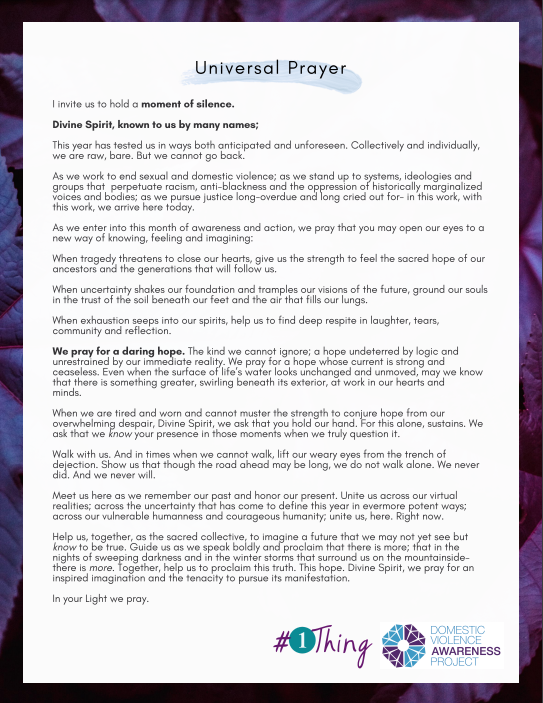
“Survivors of abuse deserve the best of what both faith leaders and advocates bring to the table.” – Rev. Dr. Anne Marie Hunter
Faith and spirituality can be important to grieving and healing for domestic violence survivors. Both faith leaders* and domestic violence advocates can play an integral role in supporting these processes. Each holds unique and valuable perspectives, resources, and backgrounds. Both are well positioned to impact positive outcomes for individuals, families, and communities. Both can shift ideologies that perpetuate harm to those that foster well-being. They can dismantle systemic oppression to allow communities to thrive. Together, faith leaders and domestic violence advocates can create meaningful change. They can support survivors who wish to utilize healing resources that are rooted in their faith and spirituality.
This collection embraces the understanding that religion is a layer of one’s cultural identity. Culturally affirming victim-defined advocacy must center spirituality for survivors. Acknowledging, respecting, and understanding religion is critical to creating a holistic response. Advocates and faith leaders can embrace this unique resource for survival, healing, and resilience.
 This collection includes resources for both domestic violence advocates and faith leaders. It fosters collaboration and promotes the development of meaningful partnerships. In this collection, readers will find helpful information and key resources that address:
This collection includes resources for both domestic violence advocates and faith leaders. It fosters collaboration and promotes the development of meaningful partnerships. In this collection, readers will find helpful information and key resources that address:
- the historical context and connections between domestic violence and religion,
- culturally affirming, faith-centered approaches to support healing and accountability, and
- the important role of spiritual activism in movement building for social change.
* The term faith leader (used here synonymously with "religious leader") is inclusive of all faith communities (federally recognized religious groups and not). Faith leaders are not only necessarily officially ordained.









